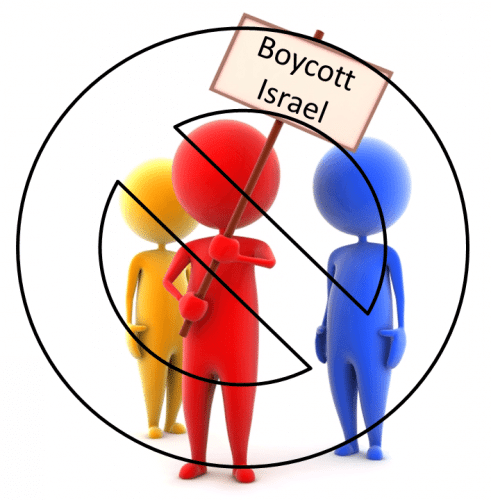Anti Boycott Regulations – Export Compliance
U.S. Anti Boycott Regulations and Your Business
U.S. Anti Boycott Regulations were put into place as a result of the Arab League boycott efforts against Israel. During the mid-1970’s the United States adopted two laws that seek to counteract the participation of U.S. citizens in other nation’s economic boycotts or embargoes. These “anti boycott” laws are the 1977 amendments to the Export Administration Act (EAA) and the Ribicoff Amendment to the 1976 Tax Reform Act (TRA), [which is found in Section 999 of the Internal Revenue Code].
Objectives
 The anti boycott regulations were adopted to require U.S. firms to refuse to participate in foreign boycotts that the United States does not sanction. They have the effect of preventing U.S. firms from being used to implement foreign policies of other nations which run counter to U.S. policy.
The anti boycott regulations were adopted to require U.S. firms to refuse to participate in foreign boycotts that the United States does not sanction. They have the effect of preventing U.S. firms from being used to implement foreign policies of other nations which run counter to U.S. policy.
Primary impact
The Arab League boycott of Israel is the principal foreign economic boycott that U.S. companies must be concerned with today. The anti-boycott laws, however, apply to all boycotts that are unsanctioned by the United States.
Who is covered by Anti Boycott Regulations?
The anti boycott regulations (provisions) of the Export Administration Regulations (EAR) apply to all “U.S. persons,” defined to include individuals and companies located in the United States and their foreign affiliates. These persons are subject to the law when their activities relate to the sale, purchase, or transfer of goods or services between the United States and a foreign country. This covers U.S. exports and imports, financing, forwarding and shipping, and certain other transactions that may take place wholly offshore.
Generally, the Tax Reform Act applies to all U.S. taxpayers (and their related companies). The TRA’s reporting requirements apply to taxpayers’ “operations” in, with, or related to boycotting countries or their nationals. Its penalties apply to those taxpayers with DISC (Domestic International Sales Corporation), FSC (Foreign Sales Corporation), foreign subsidiary deferral, and/or foreign tax credit benefits.
What do the laws prohibit?
Conduct that may be penalized under the TRA and/or prohibited under the EAR includes:
- Agreements to refuse or actual refusals to do business with or in Israel or with blacklisted companies.
- Agreements to discriminate or actual discrimination against other persons based on race, religion, sex, national origin or nationality.
- Agreements to furnish or actually furnishing information about business relationships with or in Israel or with blacklisted companies.
- Agreements to furnish or the actual furnishing of information about the race, religion, sex, or national origin of another person.
- Furnishing information about business relationships with Israel or with blacklisted persons.
- Implementing letters of credit containing prohibited boycott terms or conditions.
TRA does not “prohibit” conduct, but denies tax benefits (“penalizes”) for certain types of boycott- related agreements.
What must be reported?
- The EAR requires U.S. persons to report quarterly any requests they have received to take any action to comply with, further, or support an unsanctioned foreign boycott.
- The TRA requires taxpayers to report “operations” in, with, or related to a boycotting country or its nationals and requests received to participate in or cooperate with an international boycott. The Treasury Department publishes a quarterly list of “boycotting countries.”
Penalties for Illegal Boycotting
Violations of the antiboycott provisions of the EAR carry the same penalties as those for export control violations. These can include:
Criminal:
- “Knowing violators”: The penalties for each such violation can be a fine of up to $50,000 or five times the value of the exports involved, which ever is greater, may be imposed in addition to imprisonment of up to five years.
- “Willful violators”: The penalties for each violation — where the violator has knowledge that the items will be used for the benefit of, or that the destination or intended destination of the items, is any country to which exports are restricted for national security or foreign policy purposes — for individuals is a fine of up to $250,000, imprisonment for up to ten years, or both. For firms the penalties for each violation can be $1 million or up to five times the value of the exports involved, whichever is greater
Administrative:
For each violation of the EAR any or all of the following may be imposed:
- Revocation of validated export licenses;
- The general denial of export privileges;
- The exclusion from practice; and/or
- The imposition of fines of up to $10,000 per violation, or $100,000 where the violation of national security export controls are involved.
- The maximum civil penalty allowed by law during periods where the regulations are continued in effect by an Executive Order pursuant to the International Economic Emergency Powers Act (IEEPA) is $10,000 per violation.
Keeping Your Export Compliance Team Up to Date
Ignorance of export violations is not a viable defense for organizations. It is therefore important to ensure that all members of the export compliance team and all employees are kept up to date with current regulations and requirements. Ensure that your compliance program is up to date with CVG Strategy’s Export Compliance Training.
How Can We Help?
Take a look around our site and contact us for more information on how we can help you meet your challenges.
Latest News
Nicaragua Export Restrictions Increased by U.S.
Nicaragua export restrictions have been increased by both the Directorate of Defense Trade Controls (DDTC) and the Bureau of Industry and Security (BIS) as of


